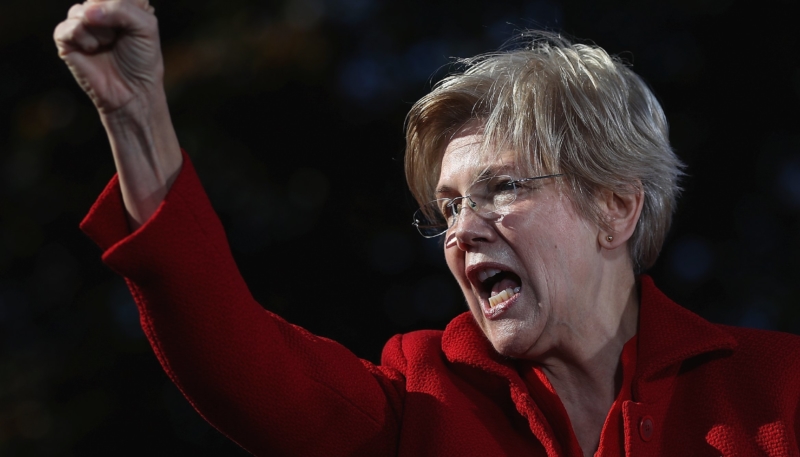U.S. Senator Elizabeth Warren today announce a plan to “break up big tech.” Warren, who recently threw her hat into the ring for the 2020 U.S. presidential derby, is proposing radical new restrictions on the freedom tech firms have to control proprietary platforms.
Today’s big tech companies have too much power — too much power over our economy, our society, and our democracy. They’ve bulldozed competition, used our private information for profit, and tilted the playing field against everyone else. And in the process, they have hurt small businesses and stifled innovation.
I want a government that makes sure everybody — even the biggest and most powerful companies in America — plays by the rules. And I want to make sure that the next generation of great American tech companies can flourish. To do that, we need to stop this generation of big tech companies from throwing around their political power to shape the rules in their favor and throwing around their economic power to snuff out or buy up every potential competitor.
Warren says she wants to stop companies like Apple from taking advantage of the ability to levy fees on developers in their app store while promoting their own apps over all others.
While Warren’s blog post focuses on Amazon, CNBC confirmed that Warren is also looking to split Apple into pieces. Warren’s targets are companies with annual revenue in excess of $25 billion. Apple easily surpasses that amount each year.
If Warren’s plan comes to fruition, Apple would not be permitted to run their restrictive App Store while also offering their own apps.
These companies would be prohibited from owning both the platform utility and any participants on that platform. Platform utilities would be required to meet a standard of fair, reasonable, and nondiscriminatory dealing with users. Platform utilities would not be allowed to transfer or share data with third parties.
Warren is obviously building off of industry complaints that Apple unfairly offers apps like Apple Music as a stock app, while requiring other services to hand over a 30% cut of in-app revenue to the Cupertino firm.
In the case of Amazon, Warren says the Amazon Marketplace and the Amazon Basics product range would be required to be split up into separate companies. As far as Google is concerned, its ad offerings would become independent of Google Search.
Apple’s App Store would be required to be run as a separate company, and Apple would be required to allow competing app stores onto its devices, thereby leveling the playing field between Apple’s App Store and its competitors.
While it isn’t unusual for candidates to “play to the base” in their party when preparing to battle in their party’s primaries, Warren’s strong language will likely be toned down if she does grab her party’s nomination and she’ll need to appeal to middle-of-the-road voters. The plans will also become even more watered down once it comes time to try to pass the legislation.
Warren will likely not be the only candidate in the next two years to make Silicon Valley tech firms a target as they attempt to sway voters. Some “political leaders” are already referring to Amazon, Apple, Facebook, and other tech firms as “Silicon Valley abusers.”


